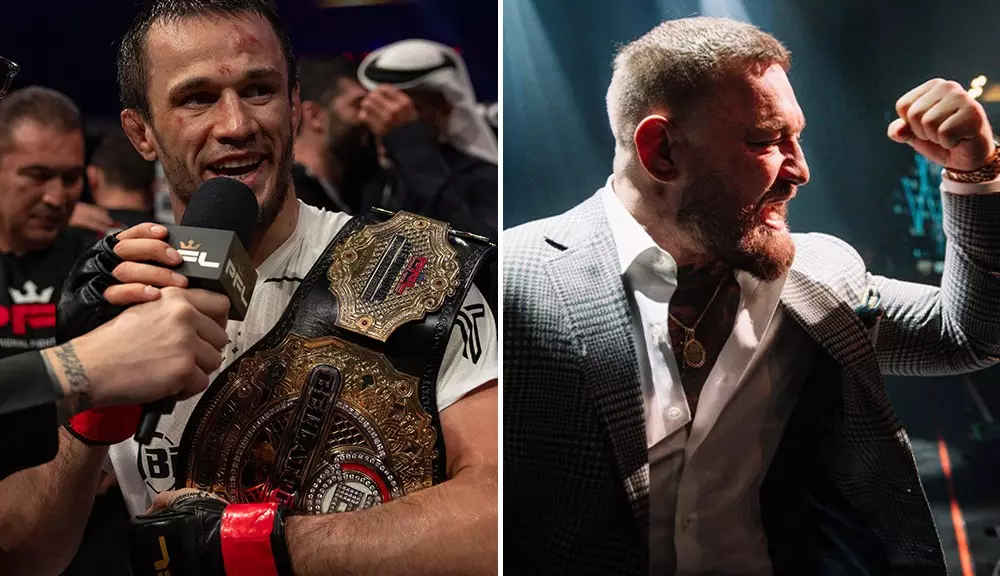In the high-octane world of mixed martial arts, drama often unfolds outside the octagon as fiercely as it does within. Conor McGregor, one of the sport’s most recognizable figures, recently found himself embroiled in controversy over the demeanor of fellow Irish fighter Paul Hughes. Following his loss to Usman Nurmagomedov at the PFL Champions Series: Road to Dubai, Hughes’ amicable interaction with Nurmagomedov and his team did not sit well with McGregor. McGregor, known for his fierce competitiveness and animosity towards the Dagestani camp, believed that Hughes’ friendly behavior was a betrayal of sorts. He took to the social media stage to convey his displeasure, suggesting that Hughes should align more closely with what McGregor perceives as a warrior’s mentality.
McGregor’s reaction highlights a stark disparity in attitudes among fighters. While fighters are often celebrated for their brutal rivalries and intense trash talk, some, like Nurmagomedov, advocate for decorum and mutual respect—even in the face of competition. Nurmagomedov expressed surprise at McGregor’s criticism, pointing out that Hughes is simply a “good guy” who believes in fostering a positive atmosphere post-fight. This raises an interesting question: Is it necessary for fighters to maintain a certain persona, or can they embrace sportsmanship without facing backlash?
Hughes’ dismissal of McGregor’s concerns showcases a shift in priorities that many fighters are starting to adopt. The younger generation, including Hughes and Nurmagomedov, often values authenticity and integrity over the hyper-aggressive personas championed by some iconic fighters. This new wave of competitors doesn’t seem to idolize McGregor’s earlier bravado in the same way that preceding fighters might have. As Hughes stated, his admiration for McGregor has waned, particularly in light of the latter’s multitude of legal troubles and public controversies. With times changing, the values of today’s fighters might not align with yesterday’s standards.
In his response, Nurmagomedov made a compelling observation about the influence prominent fighters wield. As an athlete climbing the ranks, he expressed a desire to be a good example for fans and aspiring fighters alike. “A lot of people are watching you,” he noted, emphasizing the weight that comes with a public platform. This perspective shines a light on the duality of fame in sports—while it grants athletes a stage on which to shine, it also burdens them with the responsibility of how they conduct themselves. This is particularly salient in the age of social media, where every action is scrutinized and widely disseminated.
Yet, Nurmagomedov himself admits to flaws, recognizing that he does not embody perfection. This humility is crucial in forging a connection with fans. He communicates a desire for personal improvement, not just for himself but for those who look up to him. In an era characterized by tumult and uncertainty, fighters like Nurmagomedov—who acknowledge their weaknesses while striving for personal evolution—might resonate more with today’s audience than the charismatic, controversial figures of the past.
The dynamics among fighters like McGregor, Hughes, and Nurmagomedov reveal a notable transition in the MMA landscape. As new values emerge, the role of athletes as influential figures is being redefined, urging old legends to consider the repercussions of their actions both in and out of the ring.

